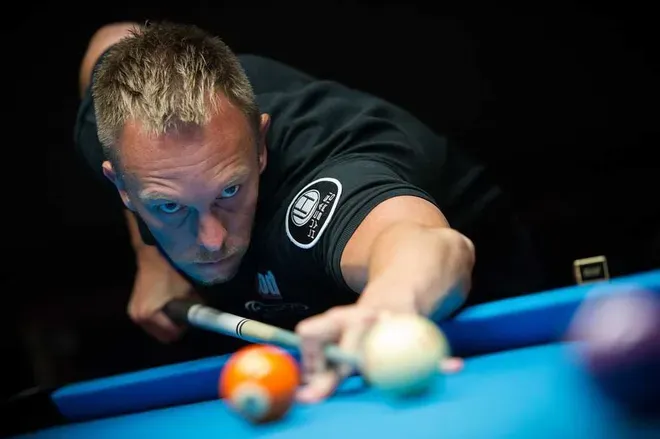OPINION: It’s Time for a Cognitive Workout
By William (Ross) Willson ‘26, Columnist; Edited by Katherine Willson ‘26, Staff Editor

You wake up one morning, walk to the bathroom, and place your feet on the scale, you are only 100 pounds. You have no muscle, you are already hyperventilating, and you might be able to touch your knees. You realize that you are a big baby and that you have been neglecting yourself athletically. Quite frankly? You are a loser. It is time to work out. Your trainer tells you to run five kilometres and do 20 biceps every day. It is torture, yet you push through it. You understand that the only way to get better is to conquer your calamities and work for the fruits of your labour.
However, people do not have the same attitude with cognitive abilities. If someone has poor critical thinking skills, they do not go online and analyze Canada’s economy. If they have poor abstract reasoning skills, they do not go to the public library and see if they can decipher what Plato is saying. At best, they study extremely hard and hope they can get through the test on Romeo and Juliet. They do not address the underlying psychological ability. When they get through the test with a ‘B-,’ they do not look themselves in the mirror and say, “If I improve my abstract reasoning, I will be able to get an ‘A.’ I will not need to study as hard, and I would have been able to hang out with my friends on Saturday night.” We just rely on what is functional. In other words, if they can walk to class without being late, they are fit enough. If they can open a door, they have enough muscle. They do not say, “I need to be able to run five km, or I need to be able to lift a 20 lbs barbell.” We need to stretch ourselves cognitively the same way we stretch ourselves physically. We can build our intellectual stamina and ability to develop a different view on fatigue and exhaustion.
When I think of intellectual stimulation, I think of mind sports, just as I would think of conventional sports when I think of physical exercise. Chess, Bridge, Pool, and crossword puzzles are all considered mental sports. Education World compared the cognitive abilities of multiple participants. Is player one better at hitting the cue ball so it hits the 8 ball at the right angle, or will player two line up the angles more accurately? The International Mind Sports Association hosts the World Mind Sports Games every four years, attracting 2,763 players in 2012. It also requires stamina and endurance like any physical sport, and practice enhances that. This makes sense because the brain, like any other organ, needs to be stretched to grow. An organ needs time to build cells, tissues, veins, and arteries that connect that tissue to the rest of the organ before the tissue is ready to perform its given function. Furthermore, when it takes more effort to complete a given task, it exhausts the brain more than if it required less effort. To build stamina, we need to stimulate the brain as the brain learns to adapt to that level of stimulation in that area. Fatigue is the pain of intellectual growth.

Additionally, it cannot be forgotten the benefits to childhood brain development if children engage in mind sports. According to Education World, mind sports develop analytical, critical thinking, and problem-solving skills. According to the University of Calgary, “Competitive Scrabble increases players’ word generation speed by up to 20%.” Likewise, according to Ebenezer Joseph, chess improves children’s “Intelligence, creativity, processing speed, reasoning skills, and memory.” Bridge improves communication, logic, memory, and visualization skills, as it stimulates both the left and right sides of the brain. All of these games are said to improve various cognitive pathways in our brains, ultimately improving intelligence. When we stretch our brains by doing activities (i.e. playing games) that require thinking and strategy, it pays off with improvement. Practice makes [proficient].
We need to revolutionize the way we think of mental fatigue to properly evaluate the best path for our bodies (which includes the mind). If we find it acceptable to burn ourselves out on the court, on the field, or the track, why can’t we do the same in the classroom, online, or at the library? Our coaches tell us when our muscles are aching, that we should work through it, as our muscles will end up stronger. Yet, we are never told, “Your mind is exhausted, you need to work through it because your mind will end up stronger.” This is a huge discrepancy in our overall philosophy of fatigue. Do we view fatigue as a growth pain, or do we view fatigue as a time to take a break? That is the question, both mentally and physically. If fatigue gets gradually less and less intense for the same degree of effort, the more it is practiced, then it is merely our mind responding to a new level of stimulation, and it is expanding. Why can’t we capitalize on that expansion, and expand our brains to their true potential? If we view fatigue positively, we can stimulate the mind and make it capable of things that it was never capable of before.
In conclusion, we need to stretch the mind the way we stretch the rest of the body: to improve stamina, and cognitive abilities. There is a fundamental discrepancy in the way we view stretch marks, such as fatigue. We need to exercise our brains. Reading, writing, puzzles, mind sports, online courses, doing extra practice problems in the textbook, and pondering, are all things that stretch the brain and grow it. If running five kilometres and making yourself throw up is an earmark of self-improvement, why isn’t going to the public library, opening a random book by a random professor, and trying to figure out what the author is saying equivalent? If that is not self-improvement, then I don’t know what is.



